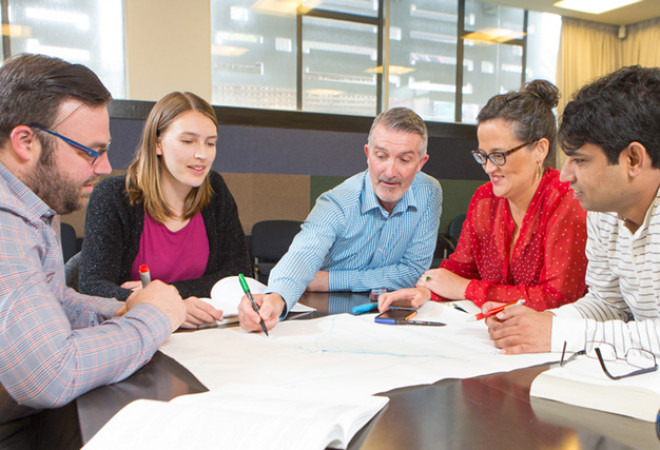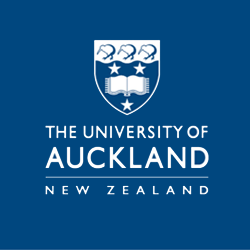
Undergraduate Mathematics
Status
Completed: 9 August 2017
Project Details
A five-year project to improve the tertiary education outcomes for mathematics learners led by the University of Auckland in collaboration with the University of Canterbury, Victoria University of Wellington and an international reference group of experts.
Aims:
The aim of the study was to develop and test a framework for expressing learning goals in undergraduate mathematics.
Methodology:
The project's methodology included the development of three innovative methods of undergraduate mathematics course delivery and the identification and observation of a wide range of desired learning outcomes.
The project sought to answer four main research questions:
- what practical, pedagogical, administrative and curricular barriers need to be overcome to establish each of the three innovations for undergraduate mathematics course delivery?
- how do the learning outcomes of students who are taught in each of the three innovations compare with those of students in conventionally structured undergraduate courses?
- how can we construct a comprehensive description of learning outcomes at upper undergraduate level?
- what practical and validated evaluation instruments can be found or constructed for the learning outcomes identified?
Team

Bill Barton
Contact project leader
The University of Auckland
Dr Judy Paterson
Co-project leader
The University of Auckland
Dr Fiona Ell
The University of Auckland
Dr Barbara Kensington-Miller
The University of Auckland
Dr Louise Sheryn
The University of Auckland
Dr Greg Oates
The University of Auckland
Professor Mike Thomas
The University of Auckland
Dr Caroline Yoon
The University of AucklandStatus
Funding
$282,177.00 (excl GST)
Key Findings
- Changing delivery methods, even quite drastically, had little effect on traditional content and skills outcomes as conventionally measured.
- Given contact with staff, support mechanisms and information about the curriculum, students seemed to achieve content and skills objectives, as measured by examinations, at the levels they had always reached.
- There was no reason to discontinue experimenting with aspects of delivery such as student responsibility for learning, use of online resources, use of lectures, alternative assessments, or group work.
- It made sense to continue to use evaluations, educational literature and an open mind to propose and test modifications to courses and evaluate them against student learning.
Key Recommendations
Course delivery methods | Mathematical science departments should develop a wider range of course delivery methods to achieve a wider range of learning outcomes.
Course delivery innovation | A wider variety of delivery styles is needed to better develop the wide range of learning outcomes that lecturers and other stakeholders expect of undergraduates in the mathematical sciences.
Team-based learning | One or two team-based learning style courses should be included in the list of offerings for undergraduate mathematics, preferably in such a way that all students take at least one such course.
Team-based learning | Use team-based learning to promote both mathematical communication and individual reading and problem-solving outside of lectures or tutorials.
Student responsibility | Aim to increase student responsibility for learning, while providing appropriate backup in undergraduate courses.
Activity design | Design appropriate semi-authentic activities as part of core undergraduate mathematics courses.
Learning analytics | Use learning analytics as part of course reporting, not just for validating current marks, grades or result profiles. Use it to report on the effectiveness of courses in achieving particular desired learning, recognising it is still a developing field.
Core undergraduate courses | Make sure courses include a question that elicits communicative ability in most tests and assignments.
Oral communication | Design at least two core undergraduate courses so that oral communication can be observed in tutorials by a small group of suitably-trained tutors using a tested schedule combined with gut feeling measures.
Attitude monitoring | Measure attitudes to undergraduate courses once a year. Attitudes are an important component of undergraduate education and measuring attitudes an effective, easy, non-time-consuming exercise that should be routine.
Conceptual readiness | Support further research aimed at producing conceptual readiness tasks and assisting lecturers design appropriate preliminary tasks for students enrolled in their courses.
Mathematical habits | Support further research aimed at defining, eliciting, and observing key mathematical habits, including the full development of a Course Learning Profile.
Capturing Learning in Undergraduate Mathematics. A report prepared by Bill Barton and Judy Paterson.
- 9 August 2017
A guide prepared by Bill Barton, Rachel Fewster, Vivien Kirk, Dimitri Leemans, Julia Novak, Greg Oates, Claire Postlethwaite, Jamie Sneddon and Mirko Wojnowski.
- 9 August 2017
A guide prepared by Bill Barton and Ben Martin. Published August 2017.
- 9 August 2017
A guide prepared by Bill Barton and Julia Novak.
- 9 August 2017
A guide prepared by Bill Barton and Liza Bolton.
- 9 August 2017
A guide prepared by Bill Barton and Barbara Kensington-Miller.
- 9 August 2017
A guide prepared by Bill Barton and Ben Davies, John Moala and Caroline Yoon.
- 9 August 2017
A guide prepared by Bill Barton.
- 9 August 2017